Women confront pandemic-related violence against women across Europe and Central Asia
Date:
Both globally and across Europe and Central Asia, home confinement and stress brought on by the COVID-19 pandemic have exacerbated violence against women and girls [see infographic]. In most countries, women’s organizations, hotlines and front-liners have noted sharp increases in calls and reports from locked-down survivors afraid that they have nowhere to turn.
As part of its response, UN Women led a gender rapid assessment of the needs of 50 women’s civil society organizations and beneficiaries in the Western Balkans and Turkey, as well as a separate assessment of services among eight safe houses in Bosnia and Herzegovina. In Albania, UN Women has launched an ‘isolated but not abandoned’ online awareness campaign and worked with the Government in Albania to reopen shelters and launch a video awareness campaign, is providing telephone psychological counselling in Kyrgyzstan, and is advocating for special measures to protect women and girls at risk of violence and to outlaw sexual harassment in Serbia. In Kosovo[1], UN Women helped open quarantine safe spaces, equip existing shelters to reach more survivors and launched a major online awareness-raising campaign on domestic violence. Meanwhile, NGOs are developing new strategies to support survivors in North Macedonia and activists in Kazakhstan are calling for stronger penalties for aggressors.
Regional assessment of COVID-19 impact highlights need to innovate in delivering specialist services for survivors of violence in the Western Balkans and Turkey
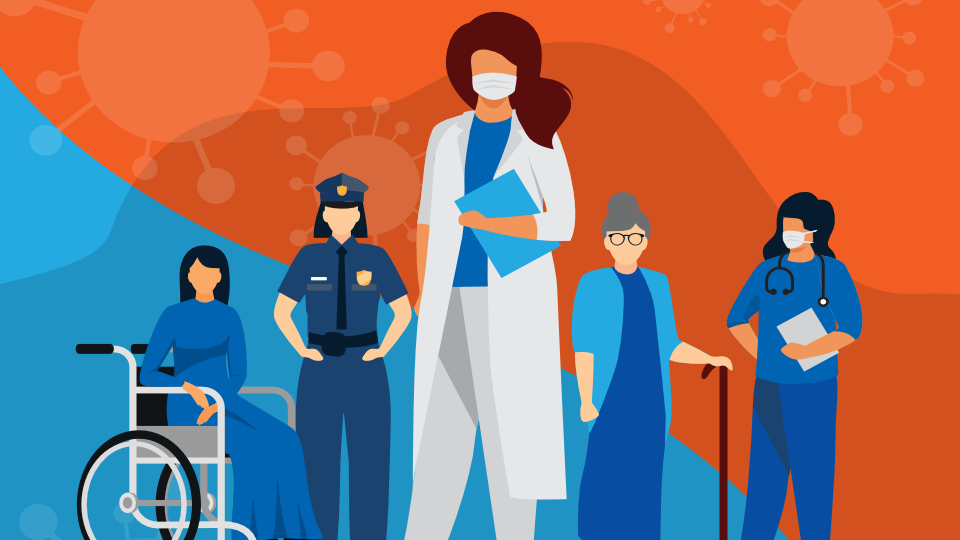
In late May, UN Women launched a rapid assessment on The impact of the COVID-19 pandemic on specialist services for victims and survivors of violence in the Western Balkans and Turkey, which gathers inputs from 40 civil society organizations, as well as from some of the women who use their services. The study – covering Albania, Bosnia and Herzegovina, Kosovo[1], Montenegro, North Macedonia, Serbia and Turkey – documents how the pandemic has unveiled weak spots in prevention and response systems, which can be further strengthened through targeted support. It provides us a road map to support civil society and governments throughout the region, with key recommendations.
Organizations also provided innovative solutions to addressing pressing issues. “As a mental health worker, it would be great to establish a working group of the existing psychosocial support workers in the organizations across the Western Balkans and Turkey,” suggested Dorontinë Berisha, a civil society representative from Albania. “We can use current experiences to further develop working protocols that are more in line with the new reality that has come with the COVID-19 crisis.”
The rapid assessment was prepared by the UN Women Regional Office for Europe and Central Asia, within the Regional Programme on Ending Violence against Women in the Western Balkans and Turkey “Implementing Norms, Changing Minds,” funded by the European Union.
Read the full story here.
In Kosovo, safe quarantine spaces are opened for survivors
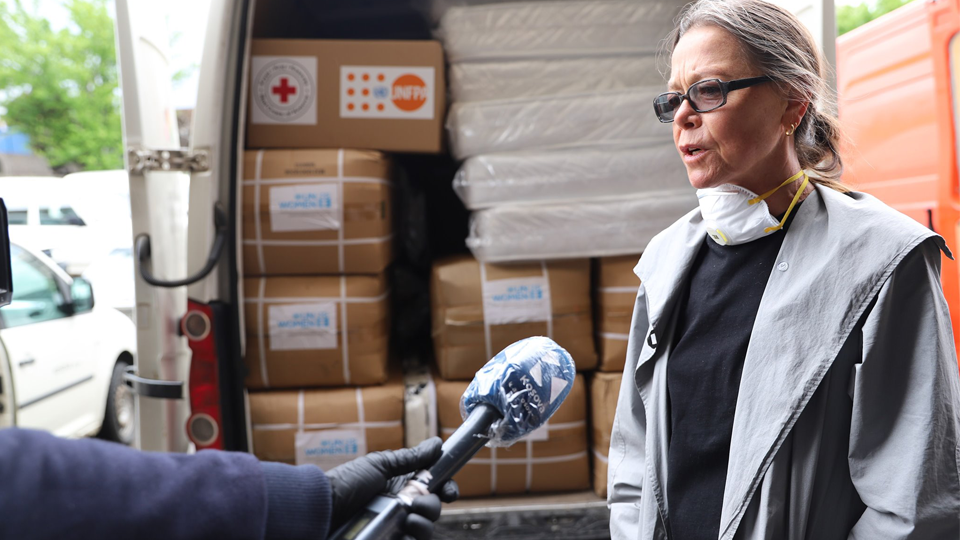
In response to a rise in domestic violence cases during COVID-19 lockdown, the Ministry of Health and Ministry of Justice in Kosovo opened a temporary safe space to shelter survivors of domestic and gender-based violence until their two-week quarantine ends and they can be placed in Kosovo government-funded facilities.
The spaces were established after UN Women and the UN Population Fund (UNFPA) initiated a multi-sectoral dialogue with Kosovo’s ministries of Health, Justice and Internal Affairs and the Agency for Gender Equality of the Prime Minister’s Office, which yielded new legal provisions to create the temporary facilities. UN Women and UNFPA are also providing essential hygiene packages, clothes, personal protection equipment and other items to the temporary quarantine facilities.
“Data show that domestic violence is increasing during this pandemic. Therefore, the Ministry of Health in cooperation with the Ministry of Justice has secured a space where all women survivors can reside,” said Minister of Health Arben Vitia at a shelter handover ceremony on 29 April. “Through the support of UN Women and UNFPA people residing in this space will have safe conditions.”
Read the full story here.
Equality Commissioner requests special measures to protect women and girls at risk of violence in Serbia
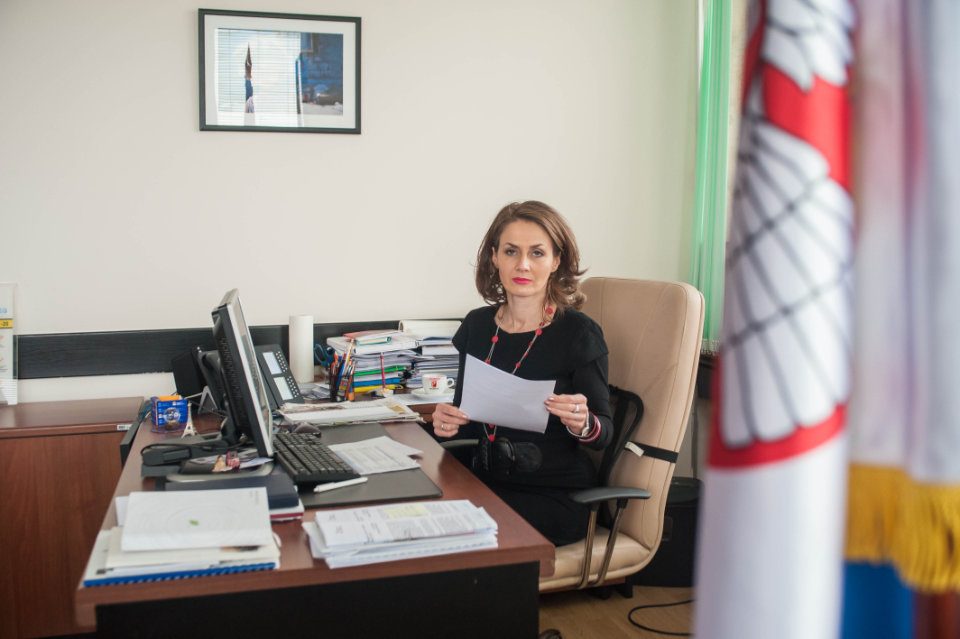
Given the increased risks of domestic and intimate partner violence, due to pandemic-related restrictions and increased tensions in the home, UN Women partners in Serbia have stepped up existing efforts to change legal frameworks and introduce new forms of protection.
“It is necessary to implement special measures to protect women and girls at risk of violence and adjust them to changes in terms of the capacities of safe houses/shelters for women and children victims of violence,” says Brankica Jankovic, the Serbian Commissioner for the Protection of Equality. “As women represent 70 per cent of the workforce in the healthcare and social protection systems and are at a higher risk of exposure to the virus, it is necessary to pay special attention to their health-related and psychosocial needs. All these and other issues have been included in our recommended measures sent to the Serbian Government.”
Jankovic is also intensifying lobbying efforts to ensure a new draft law that would amend the existing Anti-Discrimination Law to outlaw sexual harassment. The draft law is being developed with the support of an EU-UN Women regional programme on ending violence against women in the Western Balkans and Turkey.
Read the full story here.
Rapid assessment of safe houses in Bosnia and Herzegovina reveals funding needs
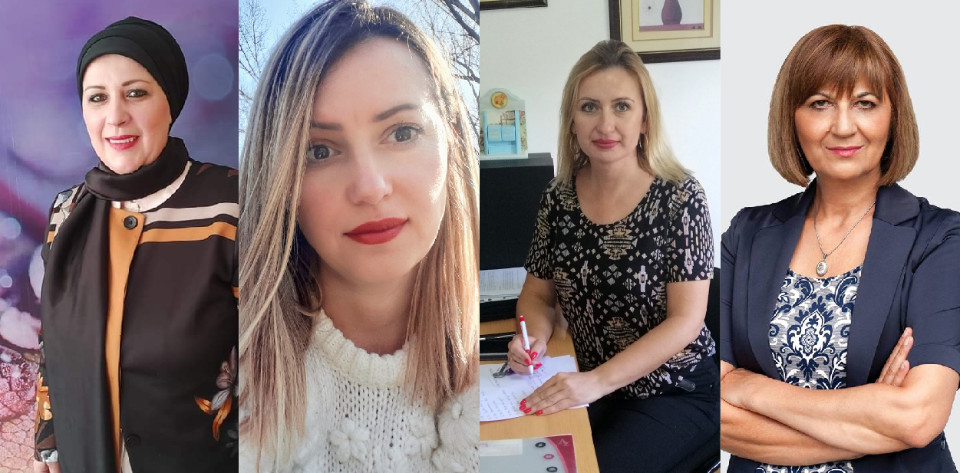
In March, UN Women conducted a rapid assessment of the status of specialized services provided by eight shelters and safe houses in Bosnia and Herzegovina and their immediate needs. While all safe houses in the country remained open, providing shelter, psychosocial support and other support services to survivors and their children, they reported lacking capacity and many have been unable to receive new beneficiaries due to the high risk of infection and inability to provide spaces for self-isolation.
“It is crucial to secure funds for basic expenses such as food and hygiene products, but also for additional staff, at least for the upcoming three or four months,” emphasizes Dijana Tadić, Executive Director of the safe house run by organization Žena BiH in the city of Mostar.
According to the rapid assessment, safe houses’ needs are growing, for trained staff and/or volunteers to operate psychosocial services, as well as funding for utilities, food, clothing and medicine for beneficiaries – as well as electronic equipment like tablets, computers and TV sets so that children in the safe houses can continue their education remotely. So far, none of the shelters have received support from any level of government to assist them in dealing with the COVID-19 crisis. In some cases, international funding has been suspended, while local funding remains uncertain.
Read the full story here.
Activists in Kazakhstan support survivors and urge stronger penalties for aggressors
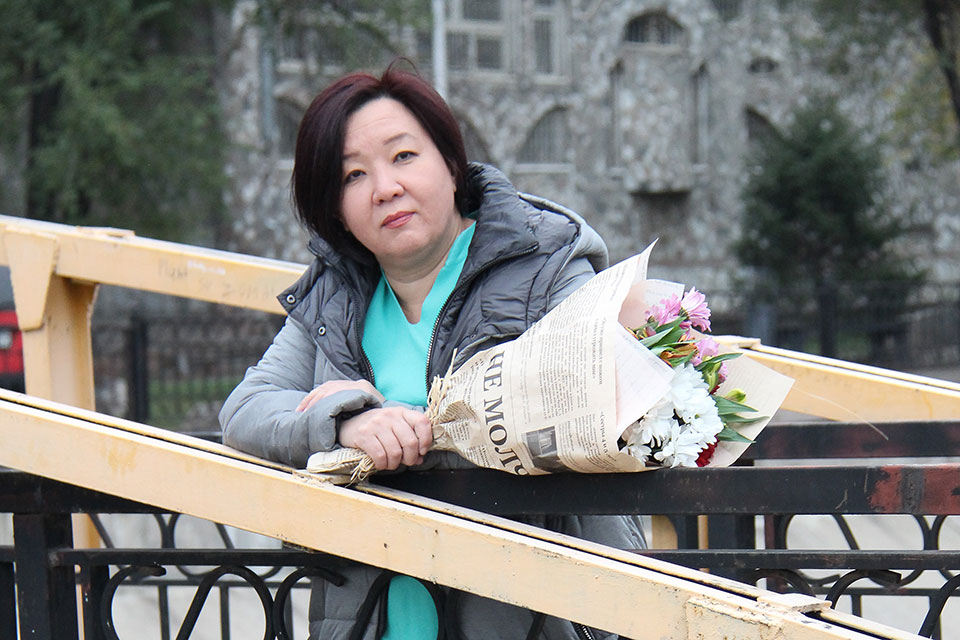
Before quarantine, the helpline operated by the NeMolchi (Don’t Keep Silent) movement in Kazakhstan received calls mainly from survivors of sexual violence. Now, the phone rings 10 to 15 times a day, and almost all calls are from women suffering domestic violence.
“Previously, when we counselled survivors of domestic violence, we urged them to report to the police and most women followed our recommendations,” says Dina Smailova, leader of the NeMolchi movement and a well-known Kazakhstani activist. “But now, just 2 out of 10 women would report to the police… because they are living in isolation, and sometimes in large families, with their husband’s parents and other relatives in one house.”
During quarantine, the courts do not work, claims are not accepted, abusers are not isolated, and women have to continue living with their abusers, she explains. She continues to push for justice and policies that better protect women.
“The fact that domestic violence is not a criminal offence in Kazakhstan is hurting women ... If, for example, violation of a protection order by the aggressor immediately becomes a criminal offence with a longer sentence, I think that would make a difference,” she says. “That is why I recently appealed to our President with a request to strengthen penalties for aggressors during quarantine.”
Read her full interview.
Women’s organizations, now first responders in Bosnia & Herzegovina
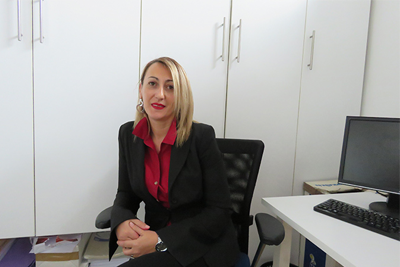
In March, two hours after the COVID-19 curfew in Bosnia and Herzegovina, a woman fled her abusive ex-husband with her children, standing outside in T-shirts and slippers until a neighbour let them in. She called the police, but they said they wouldn’t bring her abuser in or issue a restraining order.
Her next call was to the Centre of Women’s Rights, funded by the UN Trust Fund to End Violence against Women, which immediately connected her with a lawyer and a therapist. “If we didn’t intervene and provide the woman with guidance … this report of violence could have gone off the radar because of the insensitivity and ignorance of the police officer. It could have ended in a fatal outcome,” says Meliha Sendic, President of the Centre of Women’s Rights, adding that COVID-19 has exposed long-standing problems they’ve decried for years.
The Centre is running a free phone line for legal aid and psychological support for survivors of violence and providing online legal support and immediate assistance via Viber or Messenger applications. They’re also educating police in Sarajevo through a distance-learning platform.
In neighbouring Serbia, UN Trust Fund grantee Association Fenomena is running a 24/7 SOS hotline and awareness campaigns, including on the need to report violence. They’ve been reaching out to women’s networks and local media, while gathering data on public responses to violence. They’ve also developed a partnership with pharmacies and pharmacists to inform and help women survivors access safety planning tools and support services.
Read the full story here.
Shelters reopen in Albania thanks to new protocol
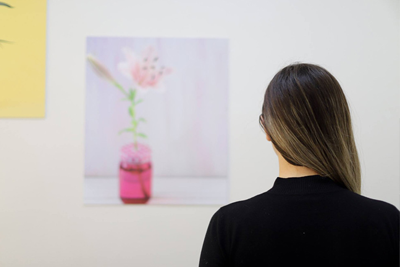
In Albania, abuse hotlines received a larger number of calls since the COVID-19 pandemic and lockdown began. But in the first few weeks, shelters were not accepting new survivors, as they did not have clear guidance on how to function.
In light of this, UN Women provided technical support to the Government to develop a protocol to ensure undisrupted functioning of shelters during the COVID-19 emergency.
Under the new protocol, domestic violence shelters were declared essential services and must remain open and accept new survivors of gender-based violence. It was adopted by the Ministry of Health and Social Protection of the Government of Albania on 10 April.
“The protocol [also] helps staff with the steps that should be taken if a beneficiary has symptoms of COVID-19 infection,” said Mariana Meshi, from the Different and Equal organization, which provides shelter and reintegration services to survivors of trafficking and abuse.
Read the full story here.
UN Women Albania also launched an awareness video entitled ‘isolated but not abandoned’ urging neighbours who overhear abuse to report cases and providing contact information for national abuse hotlines. Created in partnership with the Ministry and with funding from the Government of Sweden, the video is narrated in Albanian, with sign-language provided to ensure greater reach among people with hearing disabilities, as well as English subtitles.
Hotlines field more calls and develop new strategies in North Macedonia
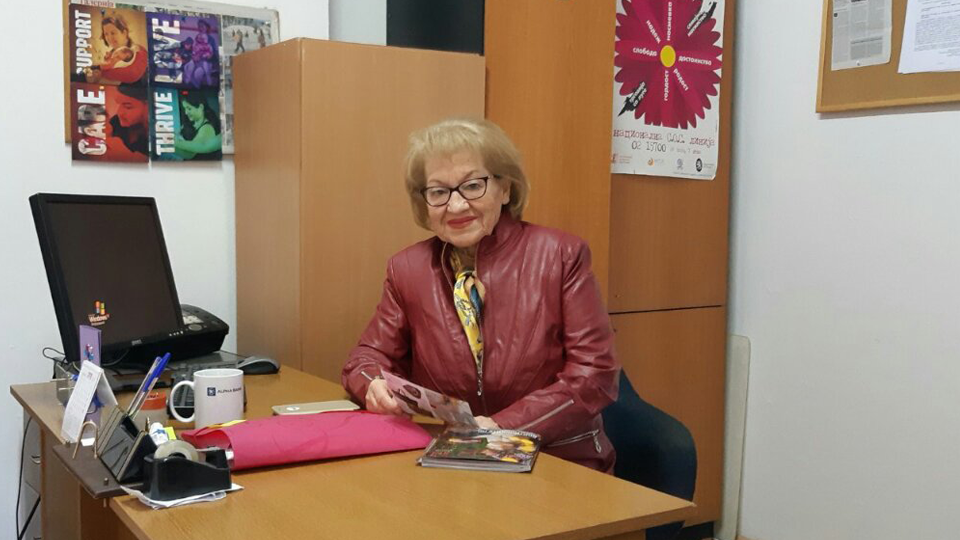
Tomka Dlevska is a long-time women’s rights activist and the President of the NGO Organization of Women of the City of Skopje, in North Macedonia, which runs an SOS helpline for survivors of gender-based violence, and provides assistance, psychosocial support and shelter. She says the hotline experienced a 7 per cent increase in the number of calls in the first few weeks of the pandemic, although calls aren’t the only way survivors are reaching out.
“Since making phone calls might be dangerous during home confinement, helplines are providing online chats and texting services for victims,” explains Dlevska. “As per our latest records, most callers say that their abusers are using COVID-19 measures to further isolate them from family and friends. Domestic violence cases increase in times of chronic stress, disruption and pandemics, often becoming a real nightmare for female victims of gender-based violence.”
She says restrictions on movement, financial constraints and generalized uncertainty embolden and provide perpetrators with additional power and control. “It is important not to leave behind women and children victims of domestic violence, as this could lead to femicides.”
Dlevska adds that resources to protect victims must remain available, be adopted or expand during the crisis – including ensuring access to protection, through restraining orders and maintaining safe shelters and helplines.
Read the full story here.
Kosovo shelters reach more survivors while a campaign increases awareness
“I had experienced violence before, but it escalated during the pandemic… so I sought help,” says Zana Gashi*, a 46-year-old survivor of domestic violence who arrived at a safehouse in Gjakova, western Kosovo. “For me, this pandemic did not start in March. I was quarantined for almost my whole life. My children [aged 16, 13 and 6] witnessed everything and encouraged me to contact the police and the shelter.”
In the first week of isolation measures, UN Women received a list of essential needs from all Kosovo shelters. In coordination with other UN agencies, UN Women helped address the needs of the shelters and women survivors and, within a short period, shelters were able to support up to 550 survivors. UN Women is also in the process of securing laptops and tablets so that children at the shelters can follow distance learning classes.
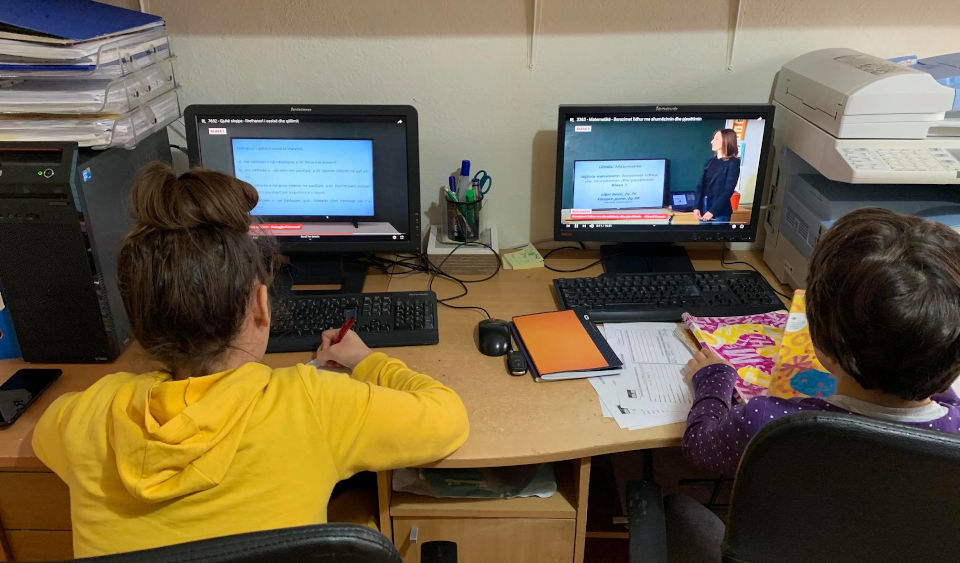
In addition, the Security and Gender Group, a multi-stakeholder group chaired by UN Women, issued a joint statement in the first week of isolation measures, calling for the prevention of domestic violence amid the COVID-19 outbreak.
In April, UN Women launched a major awareness raising campaign on domestic violence in Kosovo, featuring video messages from high-profile leaders, including the Prime Minister, that received 1 million views in the first week. The campaign aims to inform survivors that full-time assistance is available, as institutions, police and women’s organizations are working to provide rapid response and safety.
Read the full story here.
UN Women provides vital psychological counselling by telephone in Kyrgyzstan
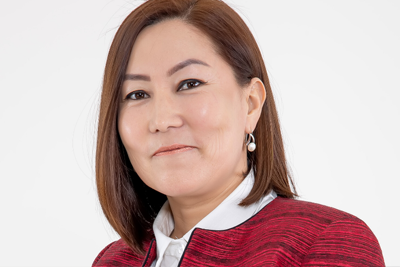
Nargiza Eshtaeva is a psychologist and UN Women gender expert from Osh, southern Kyrgyzstan who is offering survivors much-needed psychological consultations over the phone.
“Just recently, I had a case where a woman was being beaten both by her husband and her mother-in-law. The situation was so unbearable that I called the police myself and personally delivered the woman and her two infant children to the shelter,” says Eshtaeva. “Before the pandemic, I would get around five calls per month from women in need of counselling. Now, in only two months, the calls have gone up to more than 130.”
Eshtaeva says people weren’t prepared to stay at home for so long and many are experiencing panic, anxiety and stress. “This crisis has taught me that even if the situation seems very bad, there is always a way to help. For example, I didn’t know it was even possible to provide such serious psychological counselling over the phone,” she says.
Read the full story here.
Survivors stitch masks in Serbian safe houses
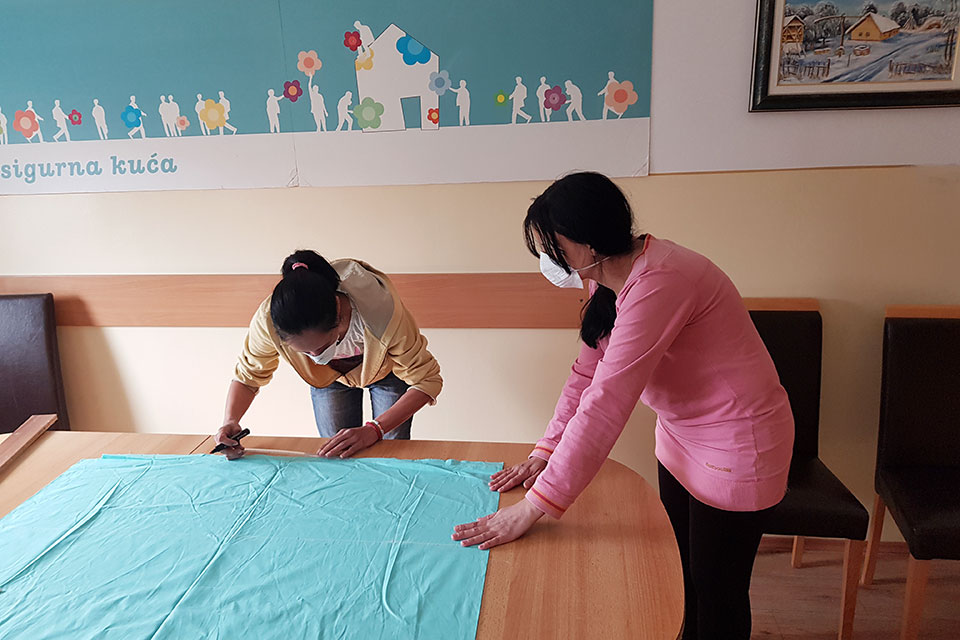
In an undisclosed location in Sombor, Serbia, 41-year-old Marija Tomic* puts the finishing stitches on a face mask. The survivor of domestic violence, who now lives in a safehouse, has made hundreds of fabric masks since the COVID-19 epidemic began in March.
“I got support when I needed it most and now it feels great to give something back,” she says. “My heart feels full knowing that this can protect or even save someone’s life.”
Women survivors like Tomic understand the danger that can come from being isolated at home. A recent study on femicide in Serbia, conducted under an EU-UN Women regional programme, indicated that the most dangerous place for women is their own home. While official data on domestic and intimate partner abuse in the COVID-19 context in Serbia has not been released, women's organizations say reports of violence and requests for assistance are on the rise.
Read the full story here.
[1] All references to Kosovo on this website should be understood to be in the context of United Nations Security Council Resolution 1244 (1999).
*Survivor’s name has been changed to protect their identity.